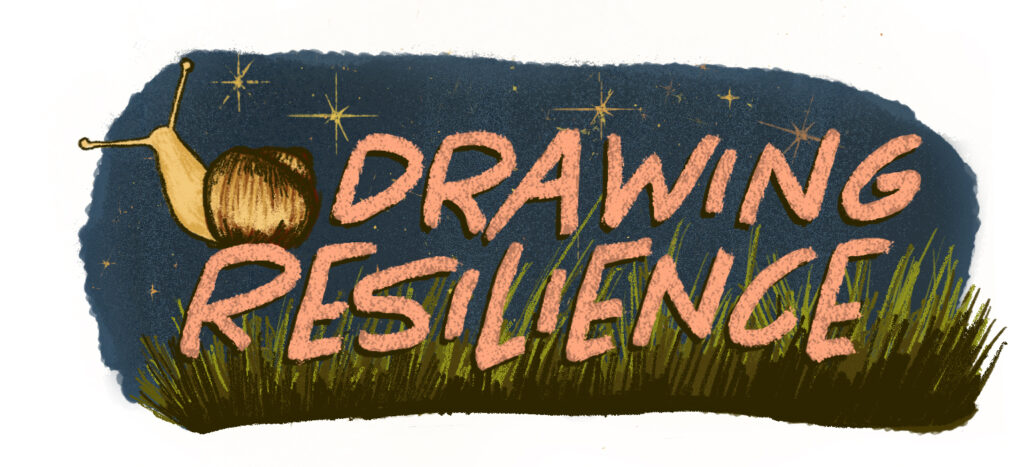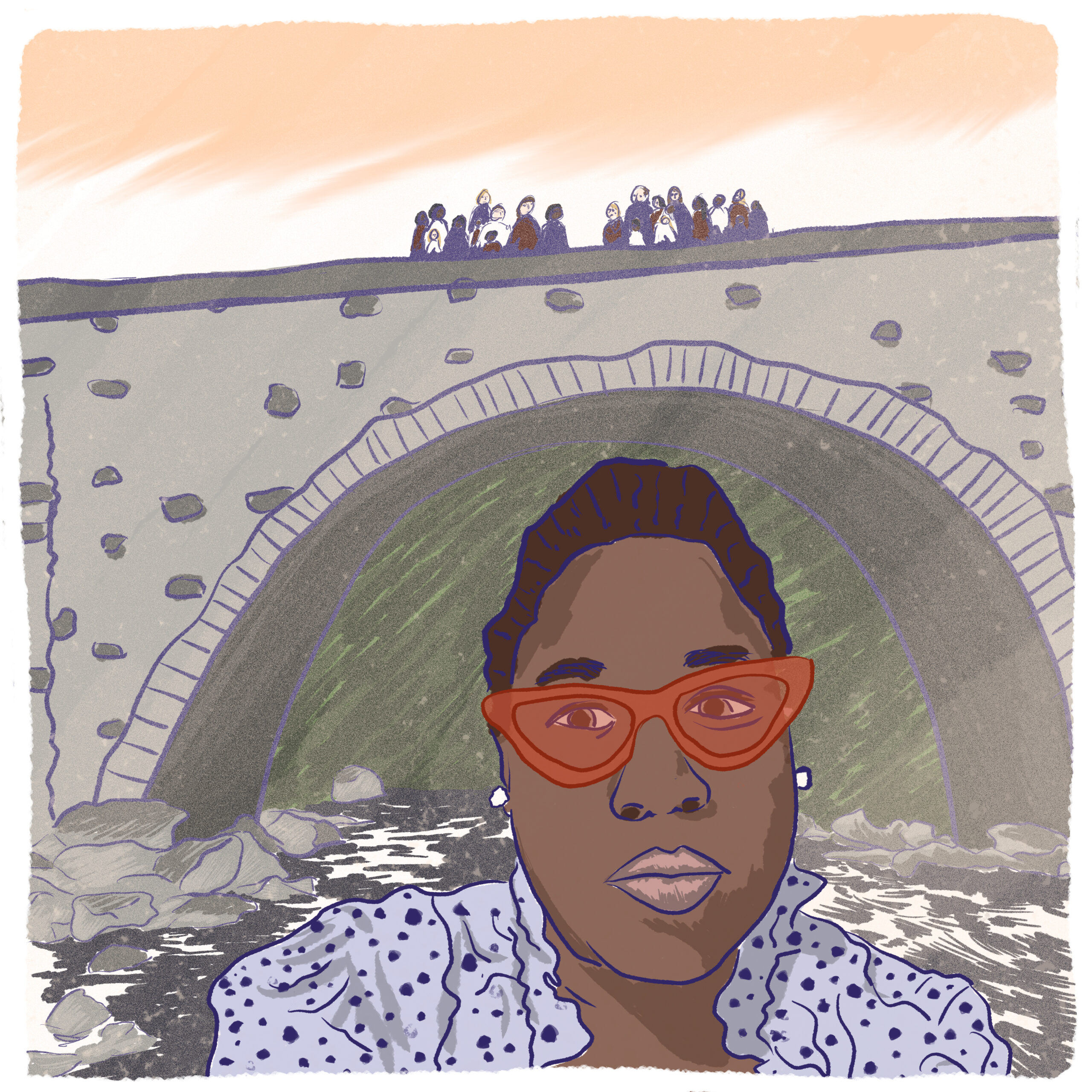Drawing Resilience: Carmina Taylor
Advocate Carmina Taylor on why we cannot wait

Illustrations and interview by Nhatt Nichols

Carmina Taylor is a passionate human service and public education advocate, and a lifelong civil rights activist. She believes giving back is more significant than receiving anything and hopes that her selfless spirit infects anyone she encounters because spreading love is so much more important to her than spreading hate.
Carmina is also the founder of the “We Can’t Wait” PA Statewide Coalition for Racial Equity and a Movement for Black and Brown Lives of Montgomery County. I spoke with her during one of her long drives between meetings with rural community leaders.
Update: On Sept. 15, 2022, Carmina was recognized at the United We Stand Summit at the White House as one of 16 “uniters” who are leading work in their communities to build bridges and address hate and division.
Tell me a little about your community and the community work you do.
When the peaceful protests broke out in the summer of 2020, a phenomenon happened. By July, Pennsylvania had over 450 peaceful protests in 231 communities. A third of them were in white, rural, red counties, which had never happened before. So there were white people in red counties protesting against racial injustice. That’s amazing, especially for Pennsylvania.
There ended up being all these new calls with local communities across the state, and I started finding out about all these racial justice issues in all these places I had never been to. That summer, I got in my car as a Black woman from the southeast region and drove all over the state.
I learned a lot about what was going on. And I became fascinated with the work that needed to get done, and I wanted people to feel like they weren’t alone, that we could build a coalition of leaders to help each other out.
I founded a group called We Can’t Wait. The concept is that if something is going on in your region, the rest of us would be there to support you. The name was derived from Martin Luther King’s first book, Why We Can’t Wait, where he said we can no longer ask for justice. We have to demand it.
I’ve been a civil rights worker, education advocate, and family advocate since I was 16. The beauty of where I am today is my life’s work has culminated in bridging gaps in Pennsylvania. I’m on a statewide tour to inspire people to act out their citizenship and understand why democracy matters, but not in a political, partisan, or religious way.
The beauty of where I am today is my life's work has culminated in bridging gaps in Pennsylvania.
Carmina Taylor Tweet
What kinds of opportunities do you see in the future for young people?
We adults have to make a concerted effort to engage, engage, engage. Yesterday, I talked to these high school and middle schoolers and asked them, Who do you talk to in your family, your network of adults when you’re stressed out? Every kid said they didn’t want to talk to any adult in their circle. Isn’t that amazing? You have to build trust and engagement in a different way with these kids, and it takes longer to do it.
Kids are not aware of how Roe v Wade can impact what they want to do in the future. We have an obligation to help them understand the big picture. These kids are disconnected, and it will take a lot of effort to engage them, create a meaningful experience for them to talk to one another, and have that experience motivate them to want to do more and do better.
Tell me a little about a change you’ve seen that feels real and hopeful.
In my engagement with government officials, I’ve seen that they are receptive and willing to work with me. That’s hopeful. These are people that don’t engage with Black people or Black women on a daily basis.
I’m thankful that they see that I care about their community and want to bridge these aspects of Pennsylvania. I’ve learned that they’re smart, they know what’s going on, and they know that their communities are in trouble.
When I started driving into the bottom quarter of Pennsylvania, I went through all these communities I’d never been to, like Bedford and Somerset. I couldn’t get a signal on my cell phone, so I listened to the local Christian radio, which was rife with propaganda. If you’re listening to that, and there are no people that look different than you, what are you supposed to do? You can’t expect people to embrace something that’s not their norm. But people have sensed my sincerity. I’ve found that sincerity is one of the biggest tools to reach people.
Get this and other rural content in your inbox with the Rural Assembly newsletter.







